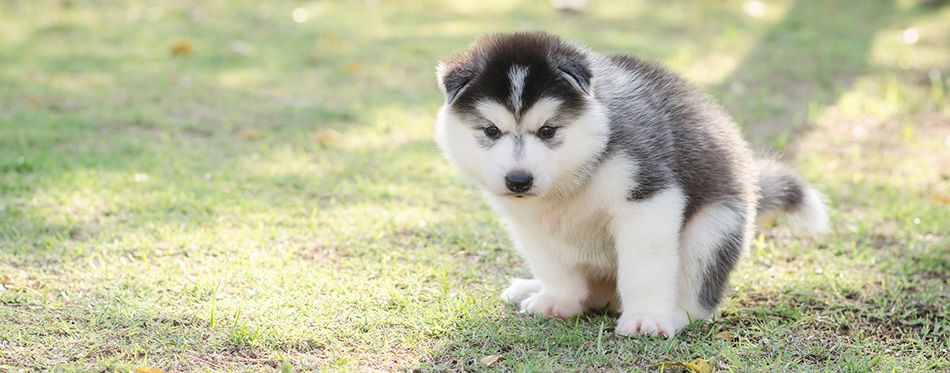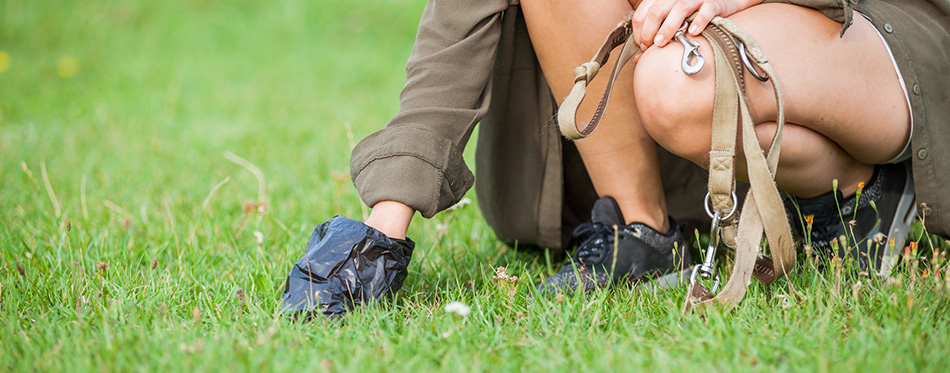As gross as it may sound, eating poop is something that almost all dogs do. It’s a habit that can signal a behavioral issue in dogs or can be a sign of a more serious medical problem. As distasteful and gross as the subject of dog eating poop is to us humans, it is imperative that we dig deeper into why our beloved furry four-legged pals engage in such activities.
Medical or Health Reasons
When Fido starts eating poop, we may dismiss it as nothing serious. But if it is already substituting dog poop for its regular meal or is really growing fond of it, then you may have to bring your pet to your vet to see if your dog has any of the following conditions.
- Deficiency in Digestive Enzymes
While we are not saying that dog poop is full of digestive enzymes, you’ve got to realize that majority of the dog food we give our pets today have insufficient amounts of digestive enzymes. When given raw whole prey food, dogs have more digestive enzymes that will help improve their digestion, allowing them to digest and absorb the nutrients found in their food. While the dog’s gut will also produce digestive enzymes, these are largely insufficient. It is thus, possible that dogs eat poop in an effort to ‘return’ the digestive enzymes and nutrients that have been passed in dog poop.
- Exocrine Pancreatic Insufficiency
The pancreas is an important organ that produces many of the digestive enzymes needed by the dog to process its food. There are certain breeds that are more prone to exocrine pancreatic insufficiency such as Rough Collies and German Shepherds. What happens is that the pancreas still produces digestive enzymes. Unfortunately, it is often not enough. This leads the dog to start eating stool in an effort to ‘return’ those nutrients to its body.
- Malabsorption Syndromes
This is quite similar to those conditions whereby there is a deficiency or inadequate amounts of digestive enzymes. Since these substances are insufficient, your dog will not be able to absorb the nutrients in food because they are simply too large to pass through the lumen of the small intestines. Since your dog is not getting the nutrients that it needs, then it will resort to eating stool perhaps thinking that it is filled with nutrients.

- Intestinal Parasitism
The thing about intestinal worms is that they are the ones getting the nutrients found in your pet’s food, instead of being absorbed in the intestines. This means that your dog will have to look for other sources of nourishment. And since it knows that you just gave it its meal, then it is left with no choice but to eat its poop.
- Hydrochloric Acid Deficiency
Older dogs are generally more prone to hydrochloric acid deficiency. Hydrochloric acid is a very powerful substance that breaks down carbs, fat, and proteins into smaller molecules that will be further processed by digestive enzymes. If there is a deficiency or insufficient amounts of HCl, then big chunks of food will not be processed, making it extra-difficult for digestive enzymes to do their job. Again this can lead to stool cravings as a means of supplying the nutrients that its body needs.
- Medical Conditions that can Increase Appetite
There are also medical conditions that can make your pet feel hungrier than usual. But since you already fed it, your dog will no longer beg you to give it extra. Canine diabetes and problems in the thyroid gland may increase your pet’s appetite, leading it to look for extra food. It can be its poop or even scraps from your garbage can.
Behavioral Issues
If your vet ruled out the presence of medical conditions, then the most likely reason why your pet is eating poop is purely behavioral. You might want to check out the following.
- Isolation or Restrictive Confinement
Dogs that are often left alone or are restricted in small, tight spaces have been shown to have a propensity for coprophagia or poop eating. Nobody can explain why, but the general observation is that dogs that are isolated or are confined to tight spaces are more predisposed to eating dog poop than those that are always in the company of their masters. For isolated dogs it could very well be a manifestation of boredom.
- Anxiety related to Punishment-avoidance
Canines that are under stress or are extremely anxious can also eat their poop. This is almost always related to poor training or even the use of harsh training methods. When a dog is punished for pooping in a place where it is not supposed to, it associates the punishment with the poop. As such, when the dog sees a poop, it tries to eat it in an attempt to ‘get rid’ of the evidence. Unfortunately, if the owner finds out, the dog gets punished again. It’s a vicious cycle that needs to stop.
- Attention-seeking
One of the most-often overlooked reasons why dogs eat poop is that they get to elicit a reaction from their owners. Did you shriek when you saw your dog eating poop? Did you scold it? Did you raise your voice or perhaps even tugged its leash? These are natural reactions that we do without realizing that we are giving our dog what it needs – our attention. Did we get your attention?
- Puppy Curiosity
Puppies are very curious about things in their environment. No one told them yet that they cannot eat poop. After all, it does look and smell like the food that they are being fed with. The good news is that puppies generally outgrow such a curiosity-driven behavior.
- Inappropriate Food Association
Dogs that are fed in areas that are close to where they poop eventually associate poop with their food. In such cases, the dog may not be able to differentiate real food from doggie poop.
- Cleanliness
There is a theory that says dogs would like to keep their surroundings clean, although we’d like to believe this is more related to feline pets. However, it is still possible that such poop-eating behavior is closely tied to a dog’s need to keep its den or territory clean.
What You Can Do
Now that you have an idea as to the possible reasons why your dog may be eating poop, here are some concrete ways to help you stop your pet from eating its poop again.
- Proper Training
Training your dog will go a long way to stopping it from eating poop as well as other undesirable behaviors. Punishing it is never a good way to instill the behavior you want from your dog. While it is true that they need to learn about how things in life are never free, you should teach them by reinforcing those behaviors that you want from them. There is also such a thing as negative punishment wherein you remove something that your dog considers as something valuable or important. This is far better than physically punishing your dog.
- Keep Things Clean
When walking your dog, make sure to pick up its dog poop so it will not have anything to eat. This goes true with your backyard. Make sure that there isn’t any dog poop in your yard which your pet may return to when you’re not looking. Placing your dog’s food bowl away from the area where your pet usually poops can also help to break the inadvertent association of dog poop with dog food. Check out our guides on pooper scooper and dog poop bags for more info.

- Keep it Engaged
Given that one of the reasons why dogs eat poop is that they are either bored or are seeking attention, then you should do everything you can to keep them engaged. Keep it both physically and mentally stimulated so that it will never have to think about eating dog poop.
- Enzyme Supplementation
It is always a good idea to give digestive enzyme supplements to your dog. This is especially true if you have been giving your pet dog mostly dry dog food. When you examine the macronutrient composition of these dog foods, they have substantially higher proportions of carbohydrates than proteins and fats. This robs them of the essential digestive enzymes that they need. Supplementing them with enzymes should help.
- Feed Raw
If you don’t like supplementing your dog’s diet with digestive enzymes, then you should feed your dog raw whole prey foods. High-quality raw dog foods are the best since these are naturally rich with almost everything that dogs need including vitamins, minerals, and digestive enzymes.
- Vitamin Supplementation
Just as enzyme supplementation is important your dog can also benefit from vitamin supplementation especially the B vitamins. There is a theory about the importance of microorganisms present in fecal matter in the synthesis or production of thiamine. Dogs tend to eat poop to help supply their bodies with the microorganisms necessary for the production of such B vitamin.
There are many reasons why dogs eat poop. Figuring out the reason behind your dog’s poop-eating tendencies is crucial to making the right decision on how you can best stop it.
Sources:
- Why Dogs Eat Poop and How to Stop It – AKC
- Why does my dog eat poop? – Blue Cross

